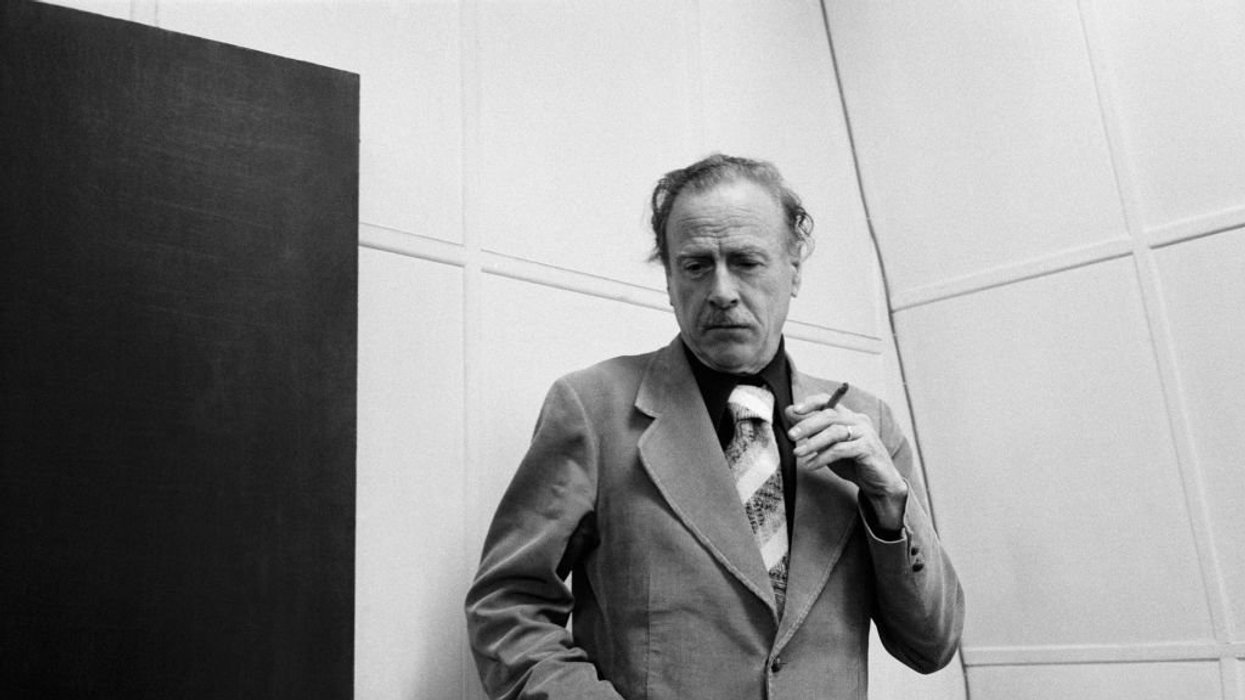
Michel LAURENT/Getty

The medium is the message.
Philosopher Marshall McLuhan wrote the essay that basically predicted the internet.
He wrote:
The next medium, whatever it is – it may be the extension of consciousness – will include television as its content, not as its environment, and will transform television into an art form. A computer as a research and communication instrument could enhance retrieval, obsolesce mass library organization, retrieve the individual’s encyclopedic function and flip it into a private line to speedily tailored data of a saleable kind.”
Pretty accurate.
However, his most important idea concerns how we should think about the media.
You may have heard the expression, “The medium is the message.” That’s his idea. If we want to understand what the media is saying and why it affects us, we should look at the medium.
He said that we need to study the medium, not the content.
So let’s say the media report on “an epidemic of transphobic violence,” which is a claim that the New York Times actually made. You read a little deeper and discover that the “epidemic” is 37 deaths in a year. Hardly an “epidemic.”
The media like to pretend that our jobs as journalists are important the same way a doctor’s job is important, or a lawyer’s. But really, we’re entertainers.
At first glance, the message is “transphobia is so widespread and problematic that transgender people are being murdered at epidemic levels.” Why do the corporate media habitually lie? How are they able, for instance, to spread the myth of systemic racism, without a hint of correction? Well, partly it’s a luxury of the nature of journalism, which has slowly become more authoritarian.
One look at the media apparatus and it’s obvious that the news no longer addresses the local reality of people’s lives. Big Tech is largely responsible.
So let’s go back to McLuhan’s idea about “The medium is the message.” In his essay, McLuhan describes the "content" of a medium as "a juicy piece of meat carried by the burglar to distract the watchdog of the mind.” By getting distracted by the content — in this case, an article about an imaginary epidemic of transphobic violence — we miss out on the bigger picture.
McLuhan is saying that the bigger picture is the point. If we want to solve the problem, that’s where we need to look. So in this example of a ridiculous article by the New York Times, what’s the medium?
It’s not the article. It’s not even the New York Times. Both of those have been around for a while. What I want to look at is their recent newfound effect on society. The medium is the internet, particularly social media. It’s how the New York Times spreads its articles.
For a while, the internet was a medium without a message. And it was great.
But technology is never neutral. Each technology has an agenda all its own. It is a metaphor waiting to unfold.
Any medium is a tool. It’s an extension of man’s senses. The internet is supposed to be an extension of man’s consciousness. It’s supposed to be a projection of all that we know, a snow globe of all that we’ve learned, accomplished, and dreamed into reality.
The truth isn’t as sunny. The truth is that Big Tech now controls the message. By McLuhan’s definition, they are the message.
Actually, it’s worse than that. Because Big Tech is just a tool for the activist class. In his book "The Madness of Crowds," author Douglas Murray points out that this new environment of hostility created by the activist class predates new tech and that even before Twitter and smartphones, “something had been going wrong in the language of human rights and the practice of liberalism,” which had been polluted by a dogmatism that “insists questions are settled which are unsettled, that matters are known which are unknown, and that we have a very good idea of how to structure a society along inadequately argued lines.”
When Marshall McLuhan predicted the next great form of media technology, he got an impressive number of things right. Sadly, he was wrong about one important aspect: He said this new technology “would encourage interactivity and participation, allowing anyone to contribute.”
Instead, it has been used as yet another hack tool to rob half the country of its inherent freedoms. To control the message.
The media like to pretend that our jobs as journalists are important the same way a doctor’s job is important, or a lawyer’s. But really, we’re entertainers. And our stage is public opinion: your political, religious, informational, and commercial forms of conversation.
News is a social institution. It’s cultural. And the clearest way to see through a culture is to attend to its tools for conversation, to find the connection between forms of human communication and the quality of a culture. It’s about the way we talk to one another. It’s about something as simple as being heard.